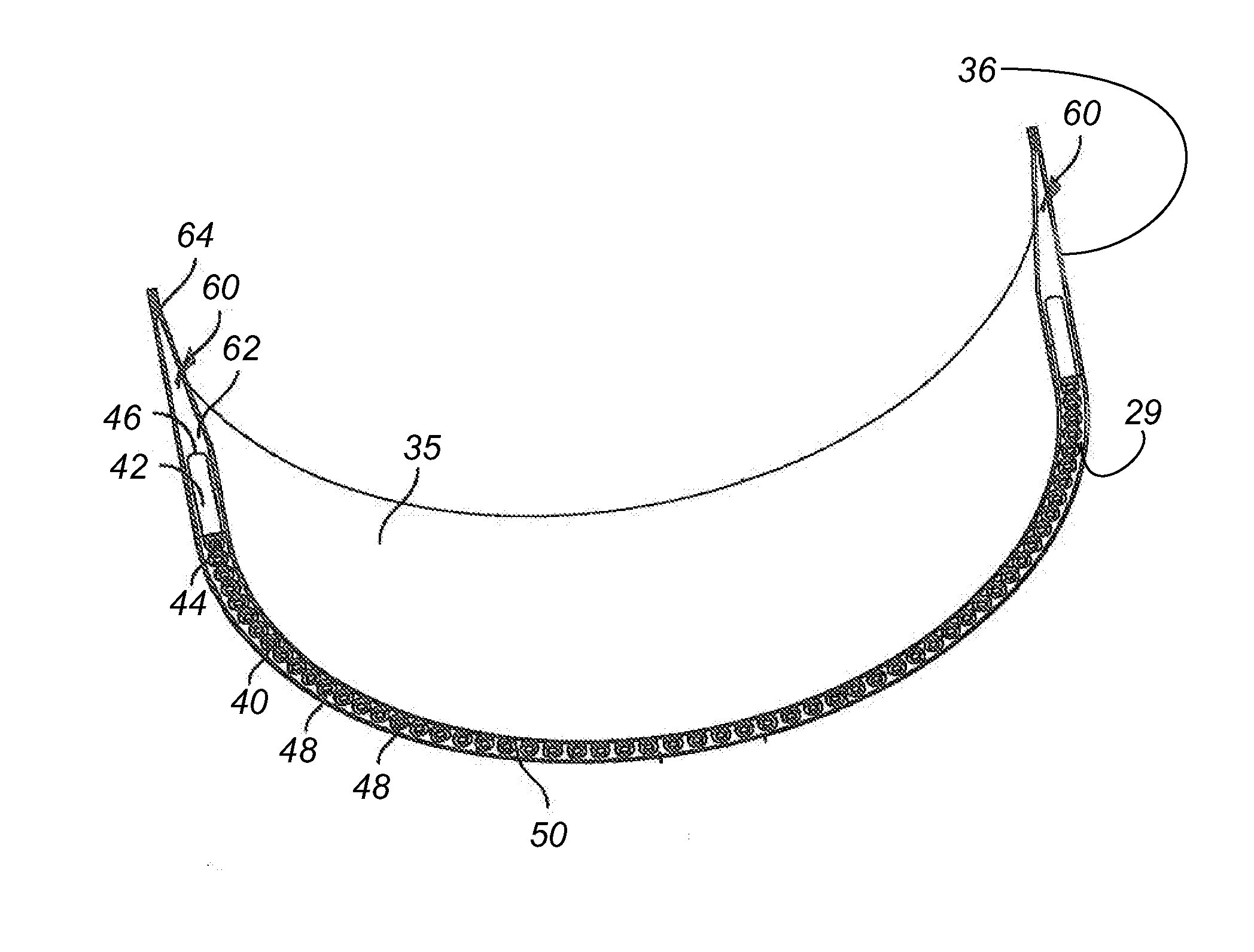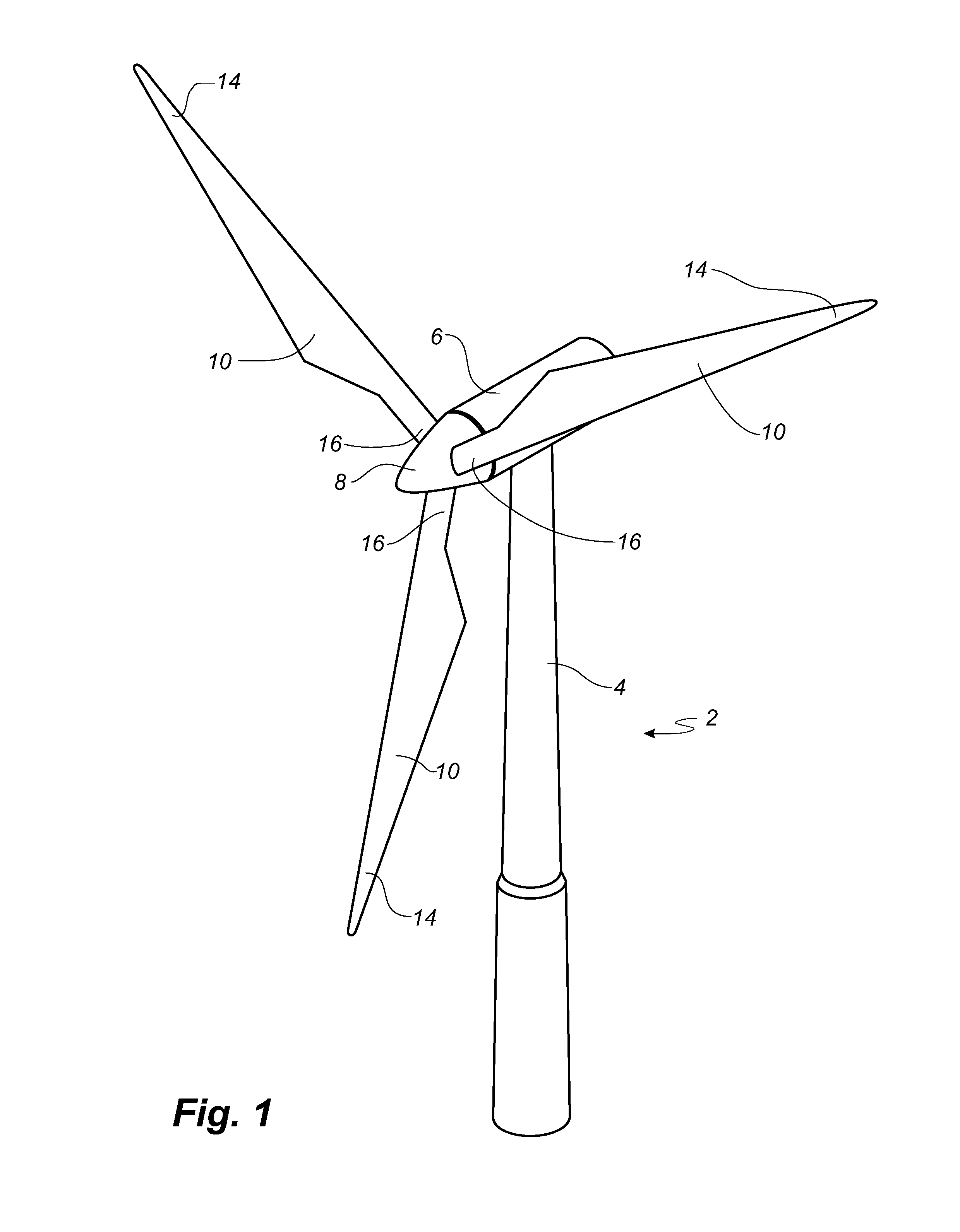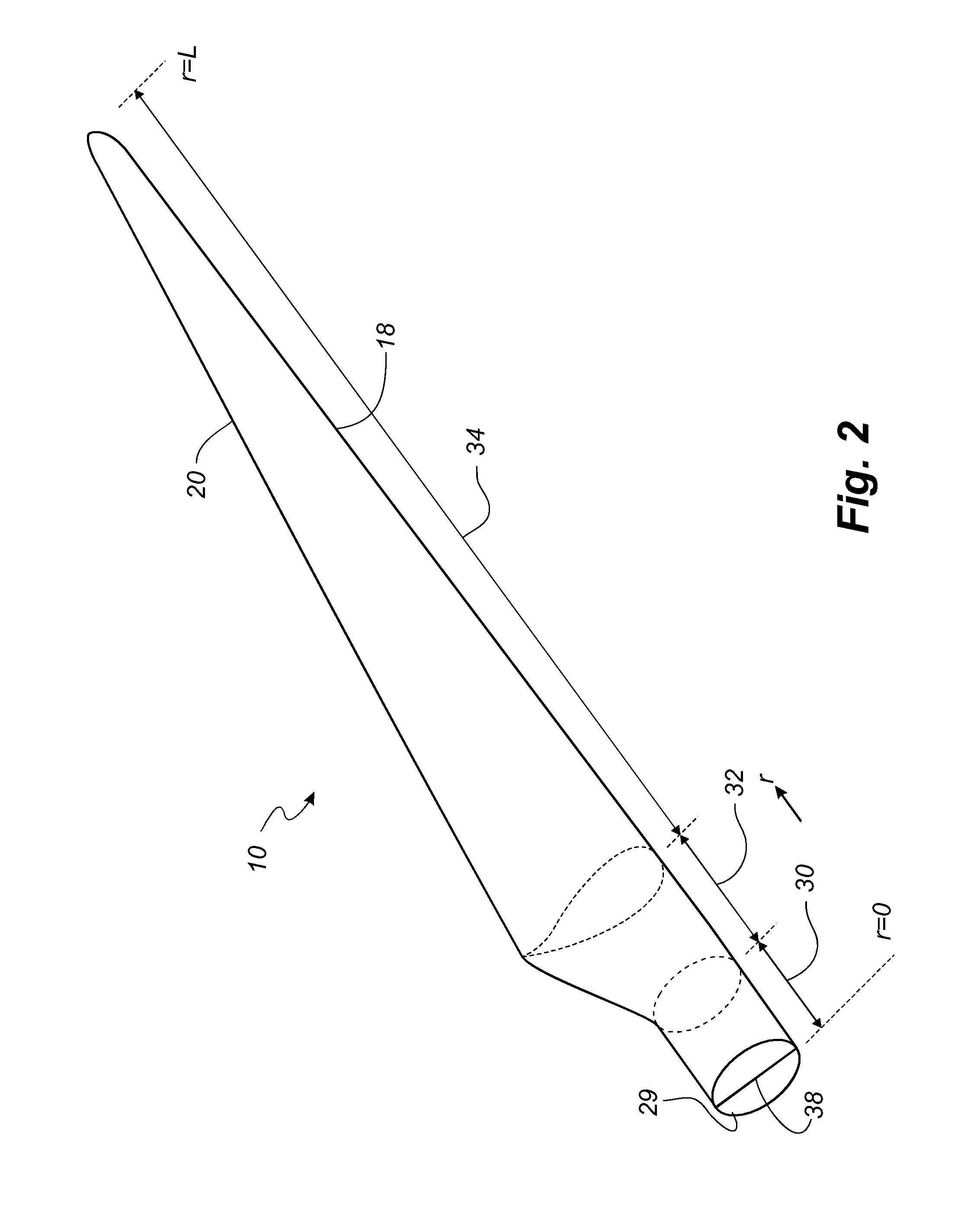Wind Turbine Blade Bushing System
a technology for wind turbine blades and bushings, which is applied in the direction of wind turbines, wind turbines with parallel air flow, motors, etc., can solve the problems of significant part of the overall cost of manufacturing, relatively high bushing cost, and high cost of bushings, so as to improve the retention of the bushing system and the effect of better anchoring
- Summary
- Abstract
- Description
- Claims
- Application Information
AI Technical Summary
Benefits of technology
Problems solved by technology
Method used
Image
Examples
first embodiment
[0101]FIG. 5 shows a wind turbine blade bushing system 140 according to the invention. The bushing system 140 is made up of at least two separately made parts comprising a threaded element 180 in form of a bolt-receiving nut having an internal thread 181 for obtaining a threaded connection with a mounting bolt or stay bolt for attaching the wind turbine blade to a blade bearing or pitch bearing at the hub of a wind turbine, and an anchor element 182, which bonds the bushing system 140 to the laminate structure of the wind turbine blade root. The anchor element 182 is provided with a through-going bore 184 between a first end 185 which is to be arranged proximal to the root end of the wind turbine blade and a second end to be arranged distal to the root end of the wind turbine blade. The anchor element 182 may advantageously be made of two separate pipes, which are attached to ends of the bolt-receiving nut 180, so that said nut 180 is retained between the two pipes via a first const...
third embodiment
[0105]FIG. 7 shows a wind turbine blade bushing system 340 according to the invention, wherein like reference numerals refer to like parts of the previous embodiments. The bushing system 340 comprises a threaded element 380 and an anchor element 382. The threaded element 380 comprises a through-going bore 384 between a first end 385 and a second end 386, and the bore 384 is provided with an inner thread 381 at the second end 386 of the threaded element 380. The anchor element 382 comprises a threaded spigot at a first end of the anchor element 380.
[0106]The internal thread 381 is arranged to receive at least a portion of a mounting bolt or stay bolt 390, and the internal thread is further arranged to receive at least a portion of the threaded spigot such that the anchor element 390 acts to at least partly retain the threaded element in the wind turbine blade.
[0107]The anchor element 382 further comprises a tapered or wedge-shaped part at a distal part of anchor element 382. The tape...
fourth embodiment
[0109]FIG. 8 shows a wind turbine blade bushing system 440 according to the invention, wherein like reference numerals refer to like parts of the previous embodiments. The bushing system 440 comprises an anchor element 482 and a threaded element 482 in form of a bolt-receiving nut or collar having an inner thread 481 for establishing a threaded connection with a mounting bolt. The anchor element 482 comprises a first portion and a second portion, the first portion substantially comprising a tubular element having an inner through bore 484 extending between a first end 485 and a second end 486. The second portion substantially comprises a tapered or wedge-shaped element. The first portion and said second portion are joined to form an anchor element 482. The first portion and said second portion may advantageously be joined via or at said nut or collar 480, e.g. via a threaded connection. Accordingly, the anchoring element 482 is assembled from two separately manufactured and preferab...
PUM
 Login to View More
Login to View More Abstract
Description
Claims
Application Information
 Login to View More
Login to View More - R&D
- Intellectual Property
- Life Sciences
- Materials
- Tech Scout
- Unparalleled Data Quality
- Higher Quality Content
- 60% Fewer Hallucinations
Browse by: Latest US Patents, China's latest patents, Technical Efficacy Thesaurus, Application Domain, Technology Topic, Popular Technical Reports.
© 2025 PatSnap. All rights reserved.Legal|Privacy policy|Modern Slavery Act Transparency Statement|Sitemap|About US| Contact US: help@patsnap.com



